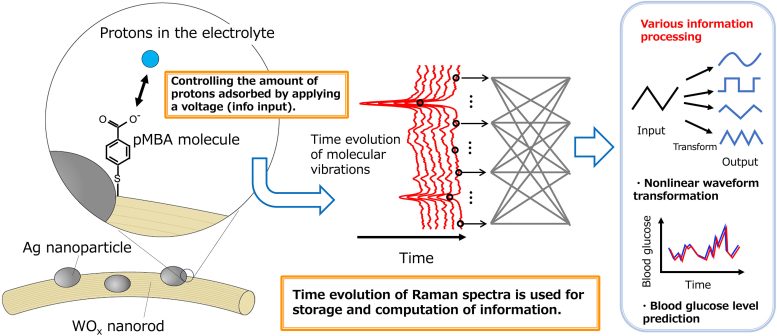
A team from NIMS and the Tokyo University of Science has developed a novel AI device that surpasses traditional models in predicting diabetic blood glucose levels by utilizing few-molecule reservoir computing and molecular vibrations, heralding new possibilities for compact and energy-efficient AI technologies.
Progress in developing compact AI devices using molecular vibrations and confirming their functionality
A collaborative research team from NIMS and Tokyo University of Science has successfully developed a cutting-edge artificial intelligence (AI) device that executes brain-like information processing through few-molecule reservoir computing. This innovation utilizes the molecular vibrations of a select number of organic molecules. By applying this device for the blood glucose level prediction in patients with diabetes, it has significantly outperformed existing AI devices in terms of prediction

The deployment of few-molecule reservoir computing harnessing surface-enhanced Raman scattering for predicting blood glucose levels. Credit: Takashi Tsuchiya National Institute for Materials Science
The outcome of this study indicates that a minimal quantity of organic molecules can effectively perform computations comparable to a computer. This technological breakthrough of conducting sophisticated information processing with minimal materials and in tiny spaces presents substantial practical benefits. It paves the way for the creation of low-power AI terminal devices that can be integrated with a variety of sensors, opening avenues for broad industrial use.
Reference: “Few- and single-molecule reservoir computing experimentally demonstrated with surface-enhanced Raman scattering and ion gating” by Daiki Nishioka, Yoshitaka Shingaya, Takashi Tsuchiya, Tohru Higuchi and Kazuya Terabe, 28 February 2024, SciTechDaily